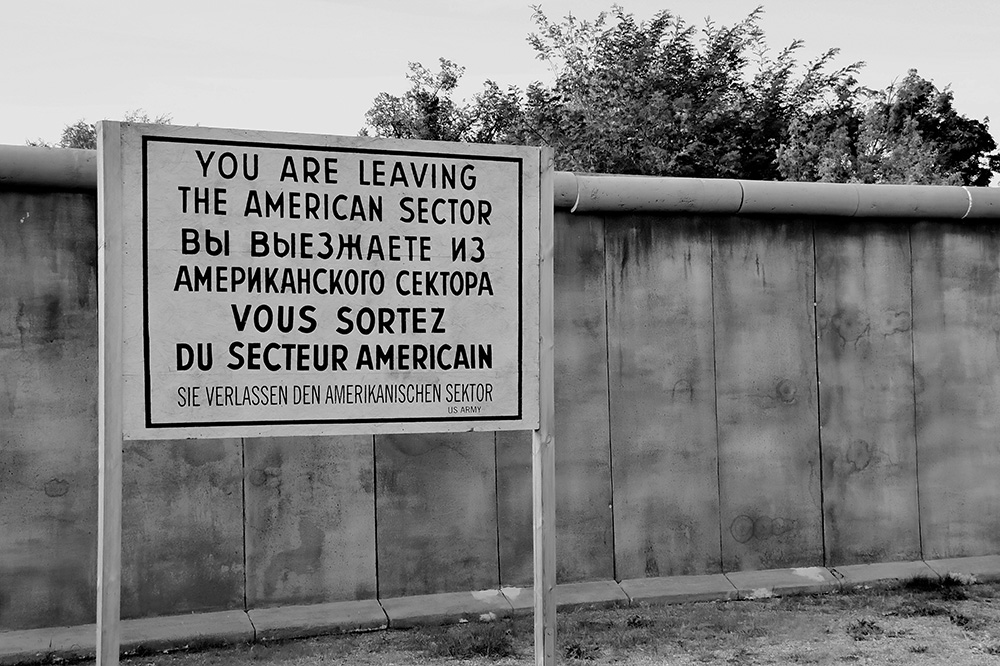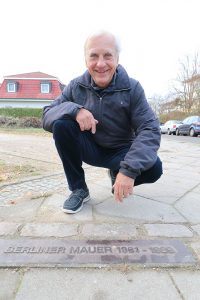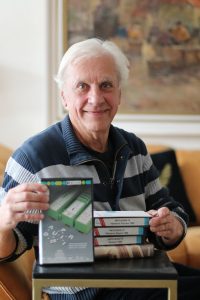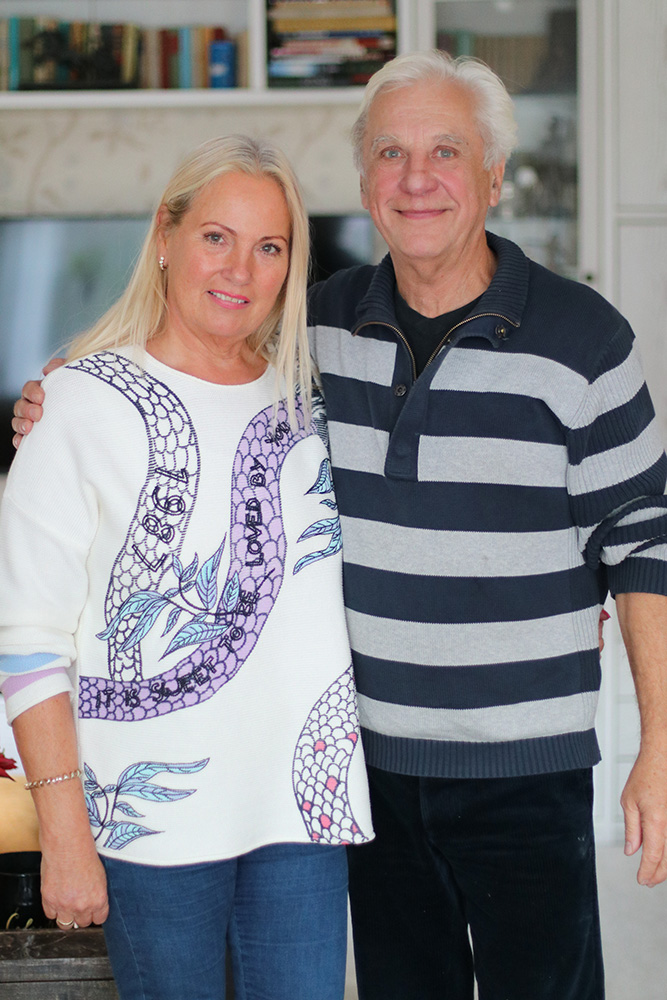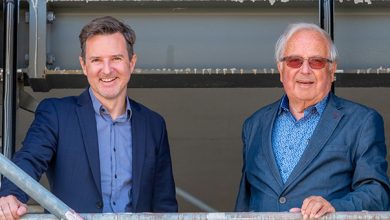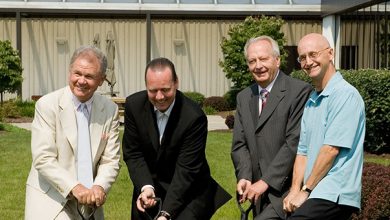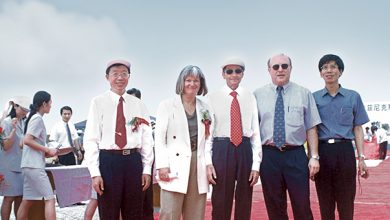With perestroika, Mikhail Gorbachev initiated an epochal change starting in 1986, which initially shook the internal conditions of the then Soviet Union, but ultimately led to the fall of the Iron Curtain. A turning point in time that also left its mark on Phoenix Contact. A contemporary witness reports.
What do they want to know?” Norbert Schultz is a true Berliner with a heart and a mouth. From 1983 to 2013, he was the sales representative for West and East Berlin known throughout the Phoenix Contact company.
“The German Democratic Republic was a foreign country back then,” Norbert Schultz recalls of the time before the fall of the Wall. Phoenix Contact’s sales stopped at the Iron Curtain until 1983, in Berlin right next to the Wall. The engineer, who was 31 years old at the time, initially set up the sales department for West Berlin. His activities included much more than just the sales aspect. As a contact person in the capital, who himself studied electrical engineering and business administration at the Technical University of Berlin, he was often called when customers or employees wanted to visit Berlin.
Easier to Alaska
But there was always the Wall in the background. It was easier for a West German to travel to Alaska, Athens or Tibet than to visit the villages within sight of the Elbe and Oder rivers. This fact did not let the native Berliner rest: “I always asked myself: What’s actually going on with the East?”
His question was heard: Together with those responsible in Blomberg, the decision was made to also develop the GDR as a market, regardless of the difficulties to be expected. At that time, responsibility for foreign countries lay with the Export Division under the management of Gerd Eisert. This meant that the busy sales representative suddenly had two Eiserts as bosses: Norbert Schultz looked after both West Berlin as an independent sales representative under Klaus Eisert and the GDR as an employee in the export department under Gerd Eisert.
The intercepted maximum discount
From the office in Neukölln, Norbert Schultz supplied the GDR with “Western technology”. Various terminals, surge protection and other products were always in stock in the company’s own warehouse on site, in order to be able to continue supplying customers for some time even in the event of political difficulties.
At the same time, supply was anything but a matter of course. The so-called CoCom list regulated exactly which Western technologies could be sold to the East.
Pricing with the GDR was not without its pitfalls: “We knew that the radio link from Berlin to West Germany was monitored by the East,” Norbert Schultz reveals. “When I talked on the phone with my colleague Ulli Scholz in Blomberg and we discussed sales prices, we always determined what percentage discount I could give.” Laughing, he adds, “And named a maximum discount that still kept our pricing stable.”
Unleaded at the border
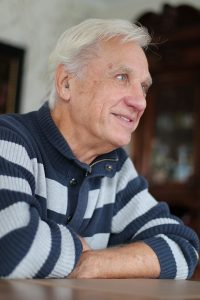
Norbert Schultz has never had any problems with the higher-level border authorities. “They always knew that I would give them the technology they wanted, so they wouldn’t get into trouble. With his permanent visa, Norbert Schultz was able to enter and leave the GDR as he pleased.
However, he did not easily get past the strict border controls. “Once I arrived at the border crossing in a brand-new Mercedes with a catalytic converter,” he recounts. “I had been told that there must be no traces of lead in the gasoline, otherwise the car would break down. But at the border, a plastic rod was pushed into each gas tank to check if anything was hidden inside. And it was always the same stick.”
With his Berlin manner, he had now charmingly opened up to the border officer that he was definitely not allowed to pierce his tank with this staff. “He then fetched his senior officer and we had a long discussion. In the end, they then fetched a plastic stick that was still wrapped and checked my tank with it. From that day on, I was known at the border crossing and was greeted with ‘I know, only unleaded at your place.'”
The wall woodpecker
On November 9, 1989, Norbert Schultz was there at close range when the border was opened. For the Wall ran only a few meters from his home in Spandau. Today, only a strip of cobblestones reminds us of it. Where there used to be a watchtower and border crossing, there are now supermarkets. And it was here that Norbert Schultz stood on the night of Nov. 9, right after the news announced the opening of the Wall, waiting for the crowds to arrive. “Nobody came at all,” he says with a laugh. “It was way too early, nobody could get there that fast.”
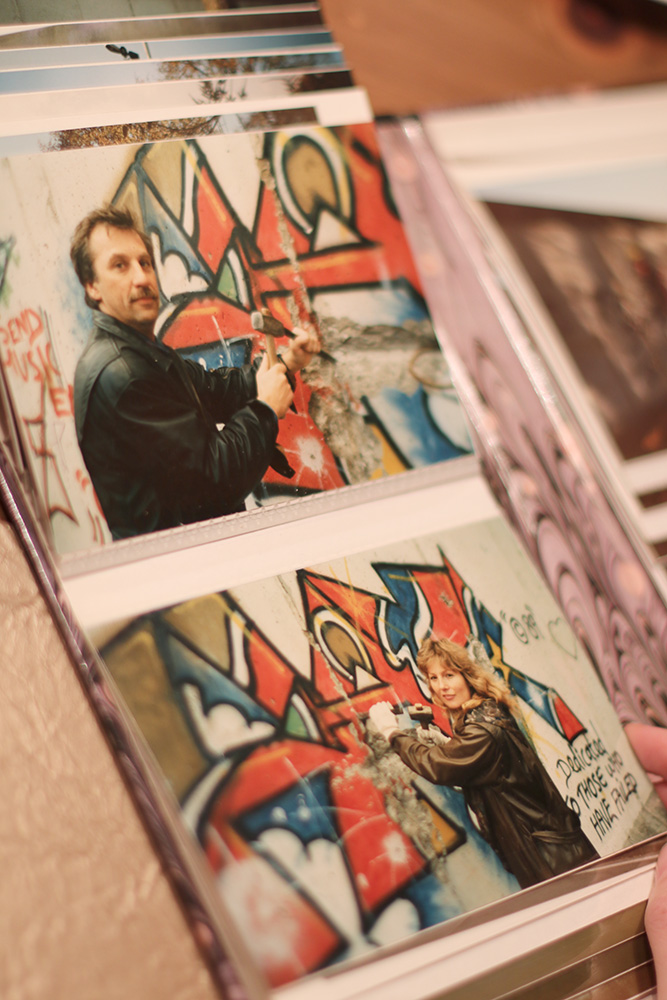
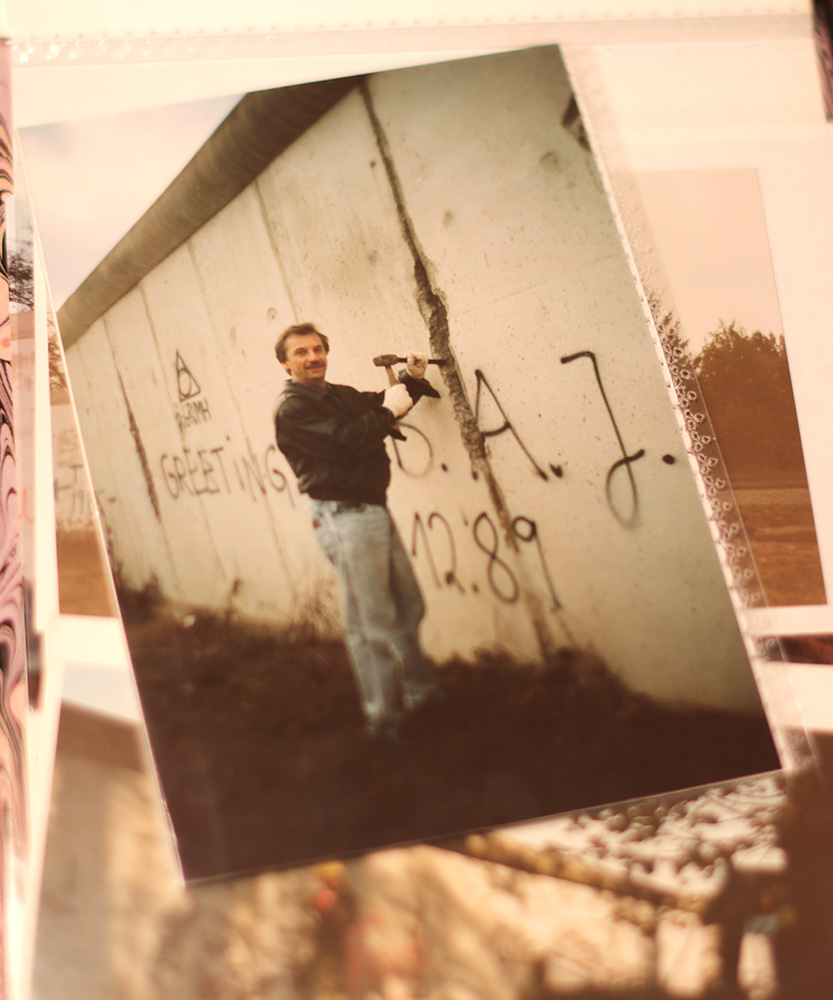
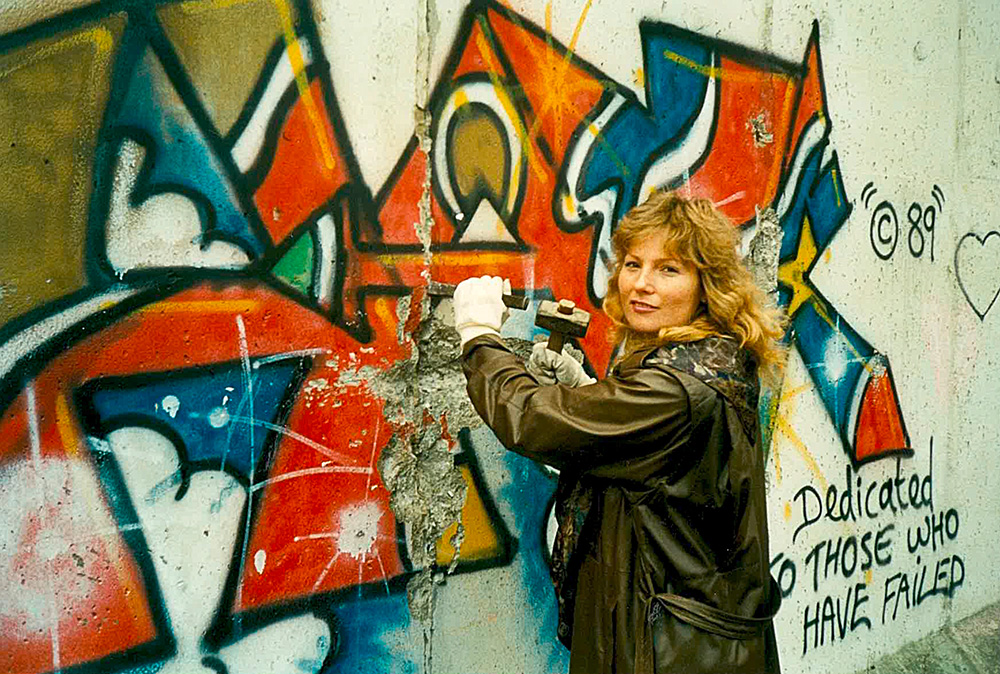
When more and more people started coming, the Schultz family unceremoniously took a couple to their home and celebrated with them over a bottle of champagne. “They actually lived right across the street,” he says. “Just on the other side of the wall.” Later, Schultz himself picked up a hammer and chisel to secure a souvenir of those historic days. He also bequeathed one of the memorable testimonies to his boss Gerd Eisert.
Opportunities in the East
From that night on, the street in front of the house was always busy. “Tour buses were parked here to take people into town. The stores could hardly save themselves from customers.” Business was booming for Phoenix Contact, too. “Thank goodness we had already rented a larger office in wise foresight,” says Schultz. “And I knew the GDR well, after all, and knew where the industrial centers were located and who the right contacts were.” So Phoenix Contact hired new representatives at all industrial sites. However, it took a few years to restructure the business in the East, says Norbert Schultz.
Since the end of the 1990s, the new federal states have been sales territories like any other part of Germany. Therefore, Norbert Schultz will probably remain the only Phoenix Contact sales representative who has ever supplied “foreign Germany” with products. And it did not stop at East Germany. Thanks to the know-how and commitment of employees like Norbert Schultz, Phoenix Contact had a brilliant starting position and valuable knowledge to expand its sales network far beyond the former Iron Curtain in Eastern Europe.

